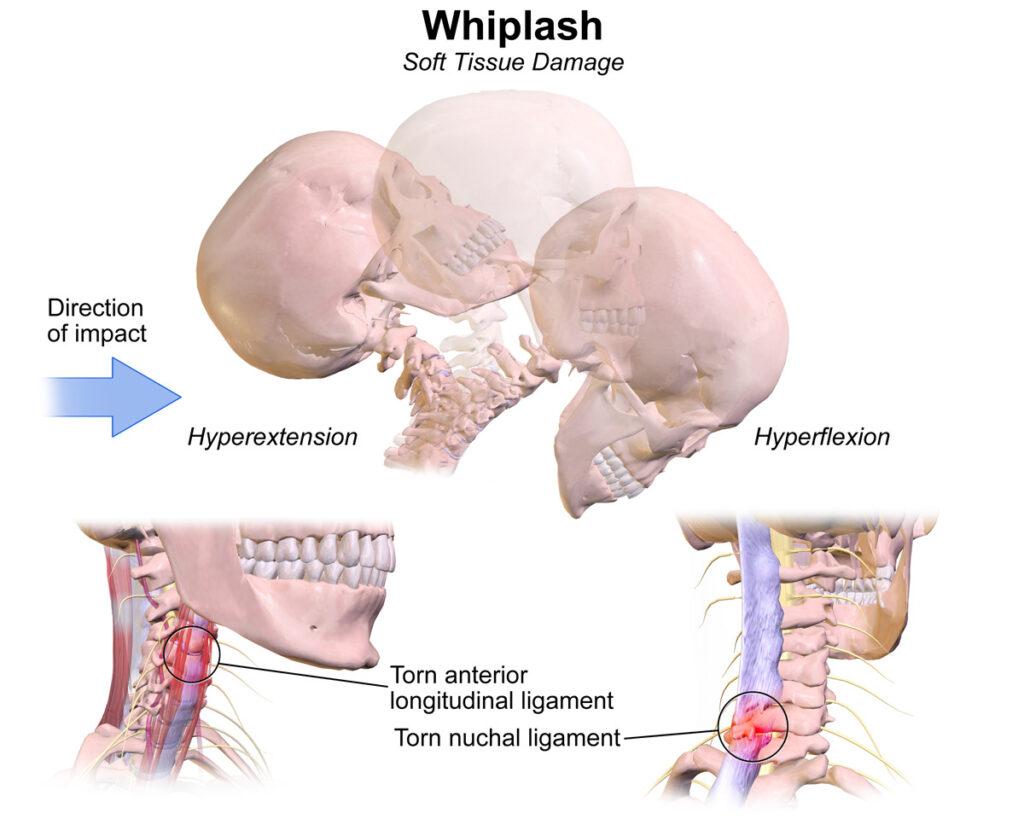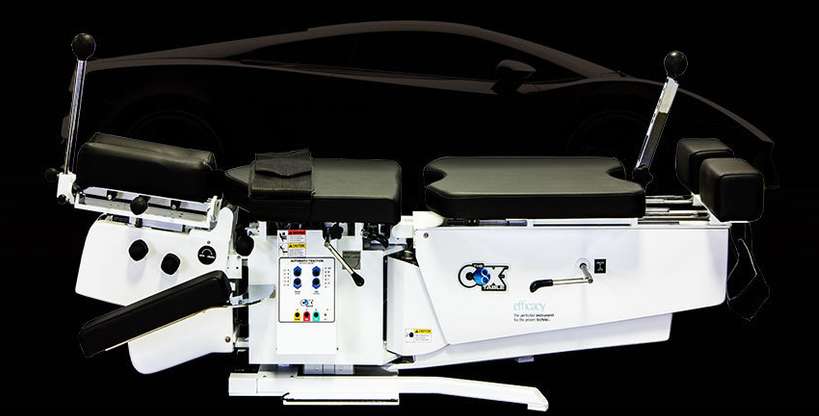Whiplash
Whiplash is commonly caused by motor vehicle accidents. Progressive Chiropractic Berwick has the skills and experience to manage whiplash injuries and get you back up and running.
What is Whiplash?
Home > Conditions > Whiplash
Have you experienced whiplash in Berwick? Whiplash is an injury to the soft tissues of the neck (muscles, tendons, ligaments) caused by a sudden and vigorous movement of the neck in one direction and quickly in the opposite direction.
This sudden movement causes a concentration of stress on the lower joints of the cervical (neck) spine and upper back which has been estimated to be up to 10 times more movement than what is considered normal. As the lower neck moves in one direction (hyperextension), the upper neck shifts in the opposite direction (hyperflexion) creating an exaggerated S-shape within the cervical spine.
When the neck is forced beyond its usual range of movement the soft tissues become overstretched or sprained, causing pain.

On This Page
Causes of Whiplash
The most common cause of whiplash injuries is motor vehicle accidents but whiplash injuries can also occur through contact sports when sustaining a sudden impact to the head.
Other causes of whiplash injury include trauma to the head with a heavy object, slipping, falling, jolting or jarring the head.
Symptoms of Whiplash
Pain following a whiplash injury occurs usually 6 – 12 hours after the injury and may progress over the following days.
Symptoms include:
neck problems: pain, swelling, stiffness, tenderness, and difficult and reduced mobility
headaches, difficulty concentrating
muscle spasms or weakness
pins and needles, numbness or pain in shoulders, arms, or hands
nausea, dizziness, vertigo, tinnitus
difficulty swallowing
blurred vision
jaw dysfunction
Carpal tunnel syndrome
poor posture
thoracic outlet syndrome
The duration of pain from a whiplash injury can last from days to months. Patients who develop chronic neck pain may suffer depression, anxiety, stress, or insomnia.

Treatment for Whiplash
Previously when the mechanisms of injury for whiplash were poorly understood, it was recommended that patients who suffered from whiplash use a cervical collar (neck brace) to reduce the movement of the neck and assist healing, until symptoms resolved. However, it is now widely accepted that immobilisation actually increases the chances of developing chronic neck pain by reducing blood flow to the neck, increasing joint stiffness and reducing neck muscle flexibility, as muscles are immobilised in a shortened position.
Therefore, it is recommended to remain active, but adapt physical activity to avoid unnecessary strain to the neck. Using ice packs immediately after a whiplash injury can help reduce swelling and proper spinal posture can help prevent stiffness and pain from developing.


How can chiropractic help with Whiplash?
Depending on the severity of symptoms, there are several techniques that can be used to manage a whiplash injury:
- Cox Technic flexion-distraction: this technique is a gentle, non-thrusting type of spinal manipulation using the Cox Table to help treat herniated discs which may have been aggravated as a result of a whiplash injury. It relieves pressure placed on the spinal nerves caused by disc herniation and reduces symptoms of the neck and arm
- Activator instrument (instrument assisted manipulation): this technique uses a specialised hand-held activator instrument to apply force without thrusting into the spine. This type of manipulation is useful for older patients who have a degenerative joint syndrome
- Specific spinal manipulation: this technique provides manual adjustment to spinal joints that are restricted or show abnormal motion. It stretches soft tissue and stimulates the nervous system to restore normal motion to the spine
- Therapeutic massage: this technique eases muscle tension in the neck
- Trigger point therapy: direct pressure is applied to tight and painful points of a muscle to alleviate muscle tension
Do you need help with Whiplash?
Research on chiropractic treatment and Whiplash
Woodward MN, Cook JC, Gargan MF, Bannister GC. Chiropractic treatment of chronic ‘whiplash’ injuries. Injury. 1996 Nov;27(9):643-5. doi: 10.1016/s0020-1383(96)00096-4. PMID: 9039361.
Stephen M. Forman & Arthur Croft. Whiplash Injuries: The Cervical Acceleration/Deceleration Syndrome (Williams and Wilkins, Baltimore), 2nd edition, 1995. “Quebec Task Force Rewrites Whiplash Protocols.” Dynamic Chiropractic, June 5, 1995, Vol. 13, No. 12, p. 28
